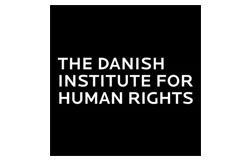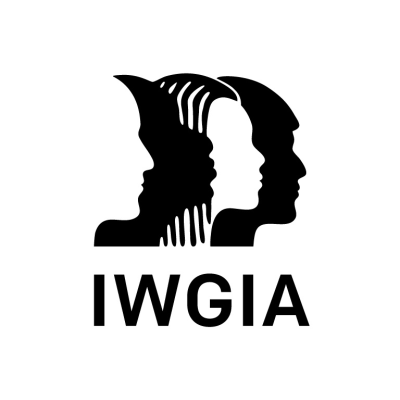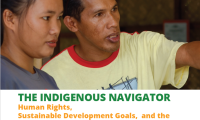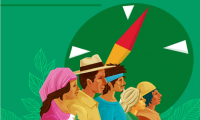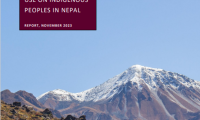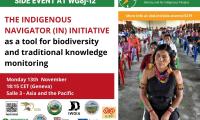Rural 21: Indigenous people – why rights and resources matter
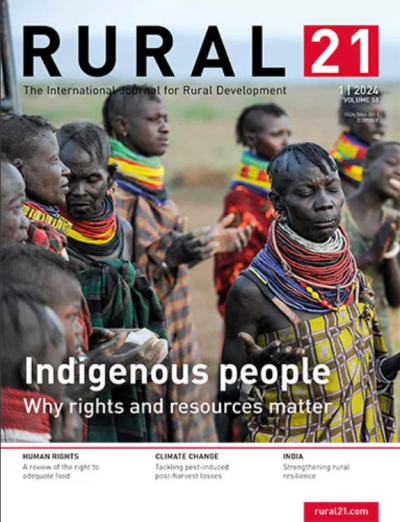
The Indigenous Navigator – data for and by Indigenous Peoples
Copenhagen, Denmark – 2 April 2024 – As the world increasingly recognizes the crucial role of Indigenous Peoples in protecting biodiversity and addressing climate change, the Indigenous Navigator continues to be a vital tool in ensuring their rights and resources are safeguarded. Highlighted in the latest volume of Rural 21, titled "Indigenous People – Why Rights and Resources Matter," the Indigenous Navigator initiative exemplifies how data generated by Indigenous communities can be a powerful catalyst for justice, development, and self-determined growth.
A Sustained Resource in the Fight for Indigenous Rights
Since its inception in 2014, the Indigenous Navigator has empowered Indigenous Peoples, who represent at least 476 million individuals across more than 90 countries and speak more than 4,000 languages. These communities are key custodians of the world’s biodiversity, protecting at least 28% of the global land surface. Despite their invaluable contributions, they face disproportionate levels of poverty, lower life expectancy, and limited access to essential services. The Indigenous Navigator addresses these challenges by providing Indigenous communities with the tools to document, report, and advocate for their rights.
To respect, protect and fulfil the human rights of Indigenous Peoples, states have, among others, an obligation to monitor the degree to which national strategies, policies and plans address the inequalities and discrimination that many indigenous communities face. To do this, states need reliable data on the situation of Indigenous Peoples. The lack of this data invariably impacts on the adequacy of state measures in both recognising the contributions of Indigenous Peoples and implementing their rights.
Key Features of the Indigenous Navigator:
- Indicator Framework:
- Grounded in the UN Declaration on the Rights of Indigenous Peoples (UNDRIP) and other binding human rights instruments, this framework measures state commitments and actions regarding Indigenous Peoples' rights through structural, process, and outcome indicators.
- Comparative Matrix and Database:
- Linking indicators to thematic domains and legal standards, this matrix facilitates comprehensive policy dialogue and accountability, integrating UNDRIP with other international human rights mechanisms.
- National and Community Questionnaires:
- These tools collect data on the recognition and implementation of Indigenous rights at both national and community levels, providing a detailed analysis of the human rights landscape.
- Indigenous Navigator Index:
- Visualizing data results, these indices rank countries' performance in recognizing and implementing Indigenous Peoples' rights, highlighting gaps and driving policy changes.
- Data Explorer and Index Explorer:
- Online tools that allow users to visualize and explore data, enhancing transparency and accessibility for advocacy purposes.
Impactful Applications and Success Stories
The Indigenous Navigator has already made significant impacts globally. The Indigenous Navigator has already facilitated improvements at national level. For example, in Nepal, advocacy efforts using the Indigenous Navigator have led to a series of reforms. Provincial and local governments have, for instance, started consulting Indigenous Peoples in local development planning and have allocated funds for the general socio-economic and cultural development of Indigenous Peoples. For example, in Palmira, in the Lomerío Indigenous Territory in Bolivia, the indigenous communities identified that there was no clear policy on implementing bilingual intercultural education in the territory. They consequently decided to embark on a project to revive the Bésiro language through a small grant and were able to study the language alongside Spanish.
Empowering Indigenous-Led Development
Central to the Indigenous Navigator's mission is supporting Indigenous Peoples in crafting their development paths, informed by their cultural values and traditional knowledge. The initiative not only aids in advocacy but also provides small grants for community-led projects, fostering sustainable and self-determined growth.
About the Indigenous Navigator:
The Indigenous Navigator is a collaborative initiative coordinated by five partners: Asia Indigenous Peoples Pact (AIPP), Forest Peoples Programme (FPP), Tebtebba Foundation, the International Work Group for Indigenous Affairs (IWGIA), and the Danish Institute for Human Rights (DIHR). It aims to provide Indigenous communities with the tools and knowledge necessary to monitor and advocate for their rights effectively.
For More Information:
To read the full article by Rural 21, visit Rural 21 Article.
